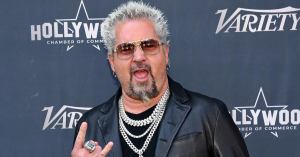Former President Donald Trump was indicted on Thursday over hush-money payments made on his behalf during his 2016 presidential campaign, marking the first criminal case against a former U.S. president. According to the Associated Press, Trump’s lawyer confirmed the New York Grand Jury voted to indict the former president on charges stemming from the Stormy Daniels payoff that was alleged since before his presidency. Trump has been defiant since the indictment talk started and seemingly threatened to incite some sort of violence like Jan. 6 while claiming he is an unfair target of a Democratic prosecutor.
The Thursday indictment follows weeks of closed-door hearings from a Manhattan grand jury probing Trump’s involvement in a $130,000 payment made in 2016 to the porn actor Stormy Daniels and another alleged payment of $150,000 to former Playboy model Karen McDougal the same year, according to the Associated Press. The payment to Daniels, made in an effort to keep her from going public about a sexual encounter she said she had Trump years earlier, was made by Trump lawyer Michael Cohen through a shell company before being reimbursed by Trump, who at the time was already in the White House. Cohen also allegedly arranged the payment to McDougal by the publisher of the supermarket tabloid The National Enquirer. The payments would have skirted tax payments as well as journalistic integrity and possibly campaign finance laws.
Videos by PopCulture.com
While the hush money itself is not a crime, the way in which the payments were logged is considered criminal. According to Mark Pomerantz, a former prosecutor who worked closely on the case and recently published a book about his experience, per NBC News, Cohen submitted phony invoices throughout 2017 referencing a “retainer agreement” and requesting payment. He then received a series of checks, which were signed by Trump while he was in the White House. However, there wasn’t actually a retainer agreement, and the fake documentation of “legal expenses” on the Trump Organization’s books could be considered a crime under New York state law, which makes falsifying business records a crime.
The federal investigators ended their own inquiry into the payments in 2019, and Trump himself has denied wrongdoing. However, Trump announced over the weekend that he expected to be arrested. On social media, Trump called on his supporters to protest what he called the “corrupt and highly political Manhattan district attorney’s office.”
Amid the anticipated indictment, police and security officials met Monday at the New York Police Department headquarters to plan for a possible arrest, a source telling Politico at the time, “We’ll be discussing how we bring Trump in.”
If Trump turns himself in, he could be processed someplace within the district attorney’s office, sources familiar with the office the Associated Press. This process typically includes paperwork, fingerprinting, a mug shot and a cross-check of any outstanding criminal charges. Trump would then be arraigned on the charge in court in front of a judge, something that would be public. It would be at this point that Trump or his attorney on his behalf would enter a plea.









